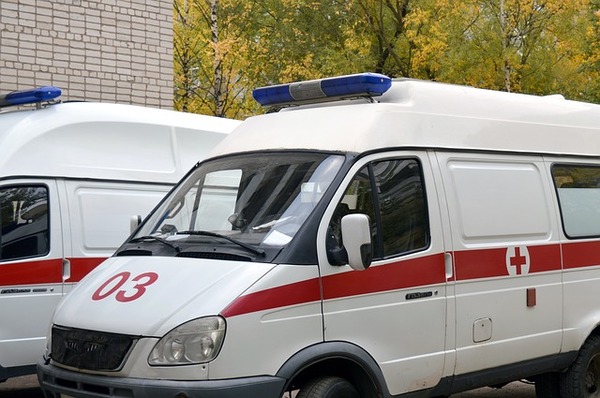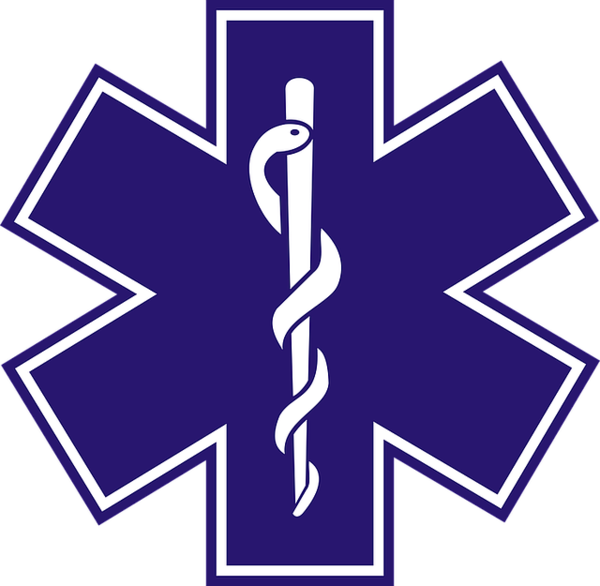I was an EMT for five years but that was about nine years ago. I left the field after becoming severely burnt out. At the time we were working 72-hour long shifts and each night I was on duty I was only getting about two or three hours of sleep a night. This took a huge toll on me mentally and physically. I became depressed and my eating habits got worse. I even developed gallstones and had to have my gallbladder removed.
Unfortunately, in the time since then, I've struggled to find work so I'm going through EMT training again so I can go back into that line of work. So I've been doing a lot of research to make sure I don't become burnt out again. EMS, along with several other types of work, including fire, law enforcement, and other medical jobs can be extremely stressful. Here are several tips that I've either learned from personal experience or from my research that can help you stay healthy if you work in any of these jobs.
1. Do your best to maintain a normal sleep schedule.
This was my main issue when I worked as an EMT before and unfortunately after it became a problem it led to other problems as well. In this line of work sometimes it's impossible to sleep for eight hours straight. But taking naps in between calls while you're at the station can help. It's better to get an hour of sleep here and there throughout the day (and have it add up to a decent amount) than to only get two or three hours of sleep total. Every EMS agency is different. Some only have 24-hour shifts, some have 8 or 12, and some have a combination of all those. If working 24-hour shifts is too difficult, try to find a company that will let you work 8 or 12-hour shifts. Or depending on your area, you might even consider working in a hospital. Some areas allow EMTs to work in emergency rooms as ER techs.
2. Make sure to eat healthily.
This was also a problem for me before. I was too tired to cook or even think about what I was putting into my body so I would often grab fast food or junk food from a convenience store. Over time this led to weight gain and I even developed gallstones. I started having gallbladder attacks all the time and eventually, my gallbladder had to be removed. I have lost the weight since then and now I make sure to eat a healthy diet but it can be easy to slip back into old habits. This time around I plan to cook meals before my shifts that I can take with me so I won't have to worry about figuring out what to eat while I'm on duty. I also plan to take healthy snacks with me so if I'm away from my station and I need to eat I won't be tempted to grab fast food.
3. Stay on top of your emotional health.
Obviously, this is a line of work where you can see some really terrible things. If you run a bad call or a patient dies on you and you find that you just can't stop thinking about it, it's okay to reach out for help. It doesn't make you weak or a bad EMT. We all need to talk to someone sometimes. Sometimes it's as simple as talking to a co-worker or a supervisor or even taking some time off from work. Sometimes the trauma is bad enough that we may need to see a therapist for a while. But either way, there is nothing wrong with being human. We know we can't save everyone but it's still hard to deal with.
4. Have a life outside of EMS.
Some people seem like they only live for the job. I was like that but I learned the hard way, it isn't healthy. Make sure you have plenty of friends that aren't just friends from work. You need people you can talk to about things that aren't EMS related. You might spend a lot of time at work but remember, there is a whole world out there. It really helps to have friends that work in non-medical fields and a few good hobbies like something art related or anything that will get you out of the house like hiking.
References:
DitchMedics.com. 5 Strategies to Avoid Burnout in EMS. Accessed at http://www.ditchmedics.com/2015/10/30/5-strategies-to-avoid-burnout-in-ems on August 8, 2018.





























